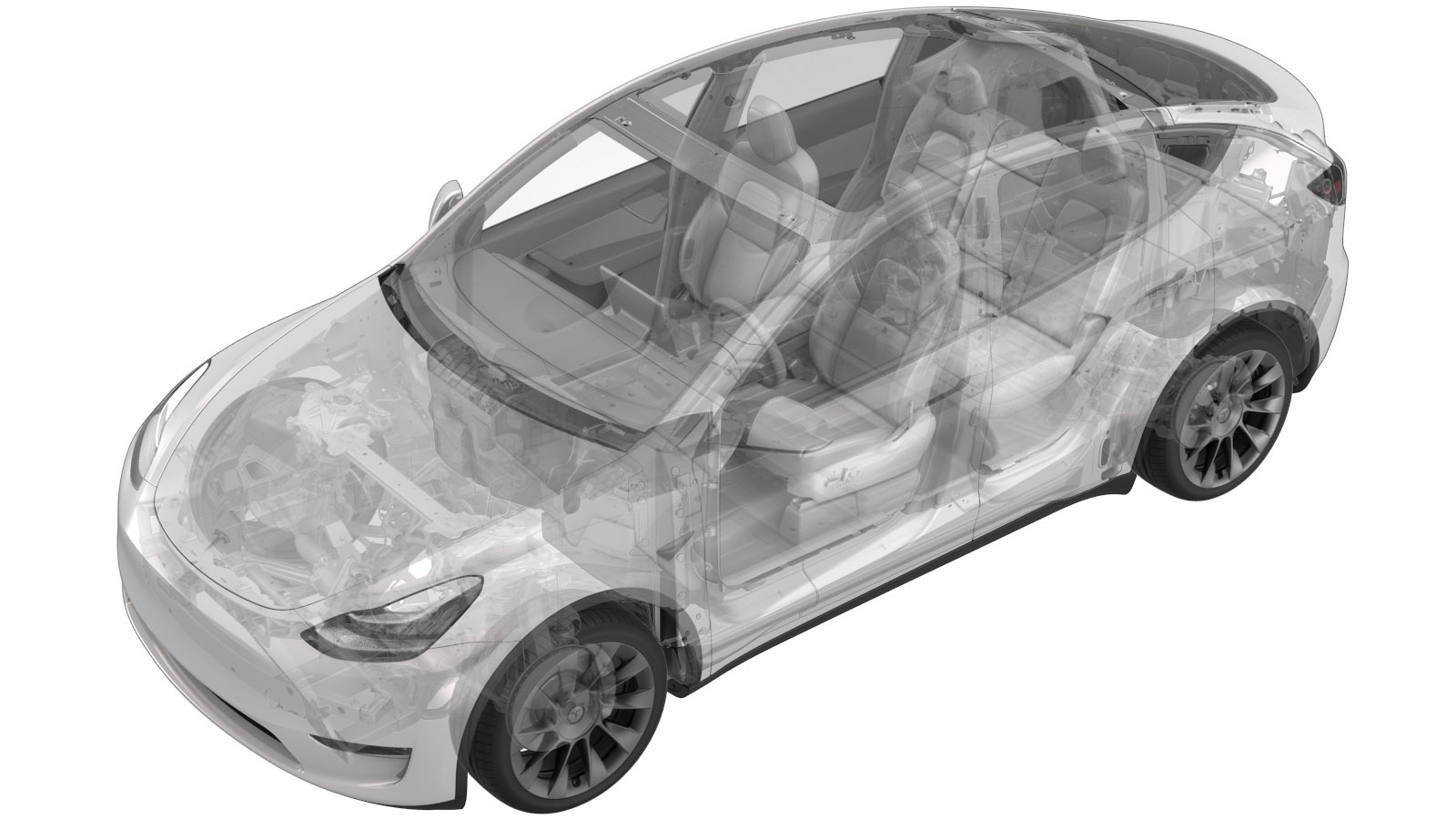Shunt - HV Battery (Non-Structural Pack) (Remove and Replace)
 16303602
1.14
NOTE: Unless otherwise explicitly
stated in the procedure, the above correction code and FRT reflect all of the work
required to perform this procedure, including the linked procedures. Do not stack correction codes unless
explicitly told to do so.
NOTE: See Flat Rate
Times to learn more about FRTs and how they are created. To provide feedback on
FRT values, email ServiceManualFeedback@tesla.com.
NOTE: See Personal Protection to make sure wearing proper PPE when
performing the below procedure. See Ergonomic Precautions for safe and healthy working practices.
16303602
1.14
NOTE: Unless otherwise explicitly
stated in the procedure, the above correction code and FRT reflect all of the work
required to perform this procedure, including the linked procedures. Do not stack correction codes unless
explicitly told to do so.
NOTE: See Flat Rate
Times to learn more about FRTs and how they are created. To provide feedback on
FRT values, email ServiceManualFeedback@tesla.com.
NOTE: See Personal Protection to make sure wearing proper PPE when
performing the below procedure. See Ergonomic Precautions for safe and healthy working practices.
- 2025-10-22: Updated the routine for different shunt types.
Only
technicians who have completed all required certification courses are permitted to
perform this procedure. Tesla recommends third party service provider technicians
undergo equivalent training before performing this procedure. For more information on
Tesla Technician requirements, or descriptions of the subject matter for third parties,
see HV Certification Requirements. Proper personal protective equipment (PPE) and insulating HV
gloves with a minimum rating of class 0 (1000V) must
be worn at all times a high voltage cable, busbar, or fitting is handled. Refer to Tech Note TN-15-92-003, High Voltage Awareness
Care Points
for additional safety
information.
Torque Specifications
| Description | Torque Value | Recommended Tools | Reuse/Replace | Notes |
|---|---|---|---|---|
| Bolt that attaches the shunt assembly to the ancillary bay |
 9 Nm (6.6 lbs-ft) |
|
Replace |
Remove
- Remove the RH 2nd row seat back. See Seat Back - 2nd Row - RH (Remove and Replace).
- Remove the LH 2nd row seat back. See Seat Back - 2nd Row - LH (Remove and Replace).
- Remove the rear underhood apron. See Underhood Apron - Rear (Remove and Replace).
- Disconnect 12V power. See 12V/LV Power (Disconnect and Connect).
- Perform the vehicle electrical isolation procedure. See Vehicle HV Disablement Procedure.
- Remove the ancillary bay cover. See Cover - Ancillary Bay (Remove and Replace).
- Remove the pyrotechnic battery disconnect. See Pyrotechnic Battery Disconnect (Remove and Replace).
- Remove the shunt insulator. See Insulator - Shunt - HV Battery (Remove and Replace).
-
Remove and discard the bolt that
attaches the shunt assembly to the ancillary bay.
TIpUse of the following tool(s) is recommended:
- Insulated
tools:
- 13 mm socket
- 2 in extension
- Insulated
tools:
-
Remove the shunt from the
vehicle.
Install
- Perform a zero adjust of the Hioki resistance meter in preparation to measure resistances later in this procedure. See Resistance Meter (Zero Adjust).
-
Write down new shunt bar resistance and part number as printed on the new
shunt.
NoteThe resistance is in the range of 20000 to 30000 nano Ohms. For example, "R:25819nΩ" is a resistance of 25819 nano Ohms, so record "25819".NoteSkip this step if installing the original shunt.
- Use an IPA wipe to clean the HV mating surfaces of the shunt, busbar, and the pyrotechnic battery disconnect.
-
Install the shunt to the busbar, and
then install and hand-tighten a new bolt to attach the shunt to the busbar.
- Measure the voltage across the pyrotechnic battery disconnect mount points, and then install the pyrotechnic battery disconnect. See Pyrotechnic Battery Disconnect (Remove and Replace).
-
Torque the bolt that attaches the
shunt assembly to the ancillary bay.
 9 Nm (6.6 lbs-ft)TIpUse of the following tool(s) is recommended:
9 Nm (6.6 lbs-ft)TIpUse of the following tool(s) is recommended:- Insulated
tools:
- 13 mm socket
- 2 in extension
- Insulated
tools:
- Install the shunt insulator. See Insulator - Shunt - HV Battery (Remove and Replace).
-
Use the Hioki resistance meter to
measure the resistance of the HV joint between the shunt and the adjacent busbar.
NoteThe maximum acceptable resistance is 0.045 mΩ (45 μΩ). If the resistance is above this value, escalate a Toolbox session, as appropriate.
- Install the ancillary bay cover. See Cover - Ancillary Bay (Remove and Replace).
- Install the LH 2nd row seat back. See Seat Back - 2nd Row - LH (Remove and Replace).
- Install the RH 2nd row seat back. See Seat Back - 2nd Row - RH (Remove and Replace).
- Install the 2nd row lower seat cushion. See Seat Cushion - Lower - 2nd Row (Remove and Replace).
- Connect 12V power. See 12V/LV Power (Disconnect and Connect).
- Skip step 15 through step 19 if installing the original shunt.
- Connect an LV maintainer. See LV Maintainer (Connect and Disconnect).
- Connect the laptop with Toolbox 3 to the vehicle.
-
Select and operation, enter the shunt bar resistance value previously recorded in
step 2, and select corresponding shunt type based on the Part number. Click Run and allow the routine
to complete.
NoteThe unit of the input resistance value is nΩ.NoteShunt types includes Vishay whose part number looks like 2084224-XX-X and Cyntec whose part number looks like 1078835-XX-X or 1588177-XX-X.
- Disconnect the laptop from the vehicle.
- Disconnect an LV maintainer. See LV Maintainer (Connect and Disconnect).
- Install the rear underhood apron. See Underhood Apron - Rear (Remove and Replace).